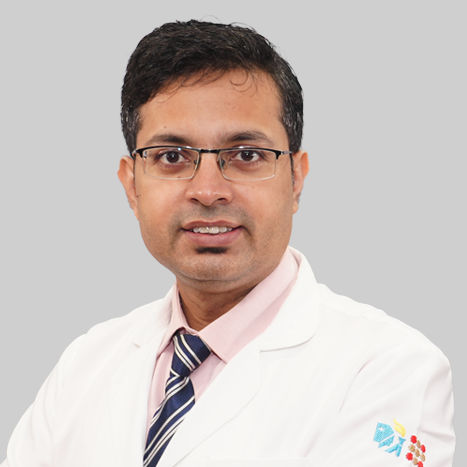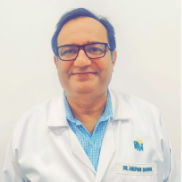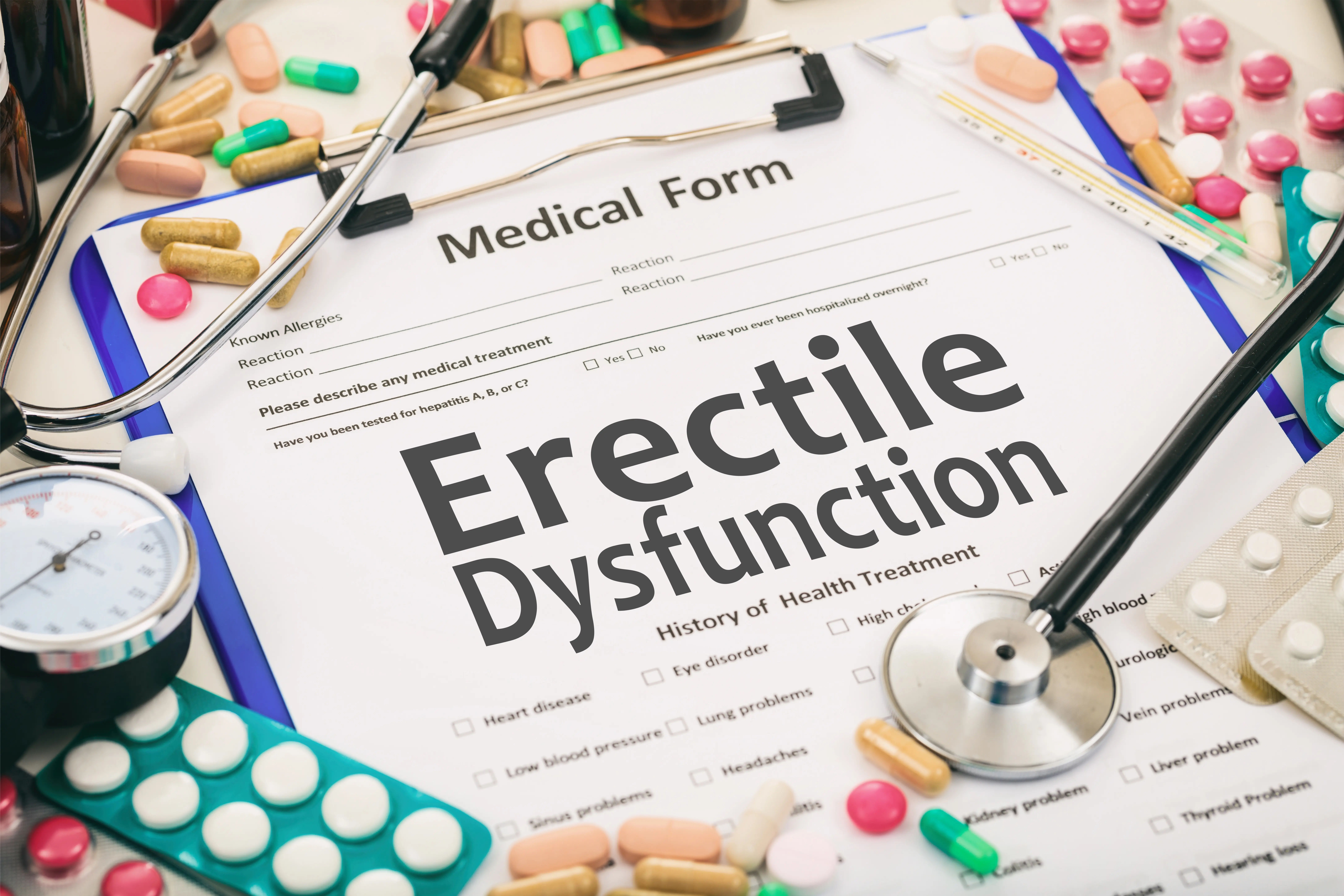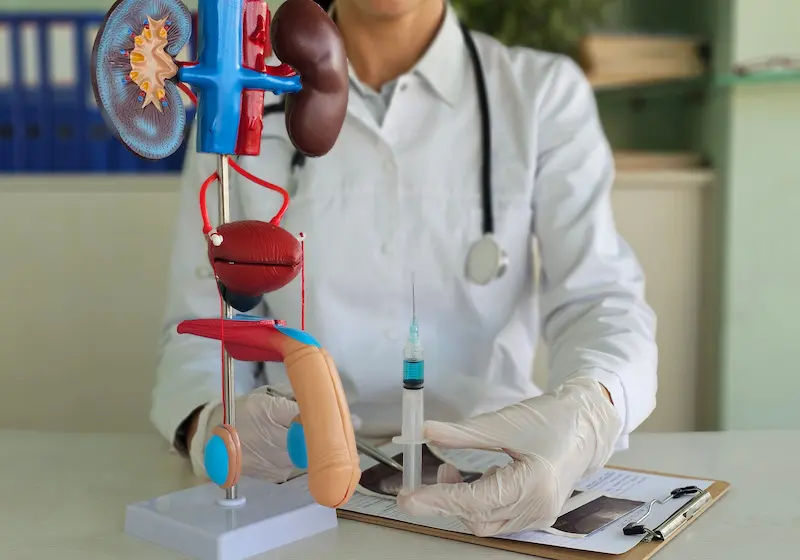Symptoms, Treatment, and Causes of ED
Discover the symptoms, causes, and treatment options for Erectile Dysfunction (ED). Learn how to manage ED effectively and when to seek medical advice.

Written by Dr. J T Hema Pratima
Reviewed by Dr. Dhankecha Mayank Dineshbhai MBBS
Last updated on 13th Jan, 2026

Introduction
Erectile Dysfunction (ED) is a common condition that affects many men at some point in their lives. It refers to the inability to achieve or maintain an erection firm enough for sexual intercourse. While it can be an embarrassing topic to discuss, it’s important to know that ED is treatable, and seeking help early can improve both physical and emotional well-being.
Symptoms of Erectile Dysfunction
The primary symptom of ED is difficulty in getting or keeping an erection. However, the condition may also include:
Reduced sexual desire – Lower interest in sexual activity.
Inconsistent erections – Occasional trouble with erections, which may come and go.
Soft erections – Inability to sustain an erection long enough for intercourse.
If these symptoms persist for more than a few weeks, it’s advisable to consult a doctor.
Consult a Urologist for the best advice
Common Causes of Erectile Dysfunction
ED can result from physical, psychological, or lifestyle-related factors. Some common causes include:
1. Physical Causes
Heart disease or clogged blood vessels – Poor blood flow to the penis can prevent erections.
Diabetes – High blood sugar damages nerves and blood vessels, affecting erection quality.
High blood pressure & cholesterol – These conditions can reduce blood circulation.
Hormonal imbalances – Low testosterone levels can contribute to ED.
Nerve disorders – Conditions like Parkinson’s disease or multiple sclerosis may interfere with nerve signals needed for an erection.
Medications – Some drugs for depression, blood pressure, or prostate issues may cause ED as a side effect.
2. Psychological Causes
Stress & anxiety – Work pressure, financial worries, or relationship issues can affect sexual performance.
Depression – This can lower libido and make it harder to get an erection.
Performance anxiety – Fear of not satisfying a partner can worsen ED.
3. Lifestyle Factors
Smoking & alcohol – Both can damage blood vessels and reduce blood flow.
Obesity – Excess weight increases the risk of diabetes and heart disease, leading to ED.
Lack of exercise – A sedentary lifestyle contributes to poor circulation and ED.
Treatment Options for Erectile Dysfunction
The good news is that ED is treatable. Depending on the cause, your doctor may recommend:
1. Medications
Oral pills (PDE5 inhibitors) – Sildenafil (Viagra), Tadalafil (Cialis), and Vardenafil (Levitra) help increase blood flow to the penis.
Testosterone therapy – If low testosterone is the cause, hormone replacement may help.
2. Lifestyle Changes
Quit smoking & limit alcohol – Improves blood circulation.
Exercise regularly – Boosts heart health and blood flow.
Eat a balanced diet – Focus on fruits, vegetables, whole grains, and lean proteins to support vascular health.
Manage stress – Meditation, yoga, or counselling can help reduce anxiety-related ED.
3. Psychological Counselling
If stress, anxiety, or depression is contributing to ED, therapy or counselling can be beneficial.
4. Medical Procedures
Vacuum erection devices – A pump that helps draw blood into the penis.
Penile implants – Surgical options for severe cases.
Vascular surgery – Rarely used but may help if blood vessel blockage is the cause.
When to See a Doctor?
If ED is affecting your quality of life or relationships, don’t hesitate to seek medical advice. Early diagnosis can help identify underlying health issues like heart disease or diabetes.
You can book a consultation with a specialist on Apollo 24|7 for personalised advice and treatment options.
Final Thoughts
Erectile Dysfunction is a common and treatable condition. Understanding its causes and seeking timely treatment can improve both sexual health and overall well-being. Simple lifestyle changes, medications, and counselling can make a significant difference. Remember, you’re not alone; many men experience ED, and help is available.
Consult a Urologist for the best advice
Consult a Urologist for the best advice
Dr. Mohamad Ali
Urologist
1 Years • MBBS, MS General Surgery, M Ch Urology
Pune
Apollo Hospitals Pune, Pune

Dr. Shekar M G
Urologist
29 Years • MBBS, MS, MCh (Urology), DNB, MRCS, FMAS, FICRS, FICS (Urology), MNAMS, DLS, FCN, FSM, FIMSA, - Fellow (Minimal Access Surgery), Fellow (Robotic Surgery)FIAGES,FALS fellow of advance laparoscopic surgery, FAGE
Chennai
Apollo Speciality Hospitals OMR, Chennai
(100+ Patients)

Dr Karthik Maripeddi
Urologist
13 Years • MBBS MS FMAS MCh URO(OSM)
Hyderguda
Apollo Hospitals Hyderguda, Hyderguda

Dr Ved Bhaskar
Urologist
11 Years • MBBS, MS (Gen Surgery), MCh (Urology), Fellowship in Robotic Surgery
Lucknow
Apollomedics Super Speciality Hospital, Lucknow

Dr Anupam Sharma
Urologist
18 Years • MBBS, MS(Gen Surgery), DNB (Urology)
Delhi
Apollo Hospitals Indraprastha, Delhi
(25+ Patients)




